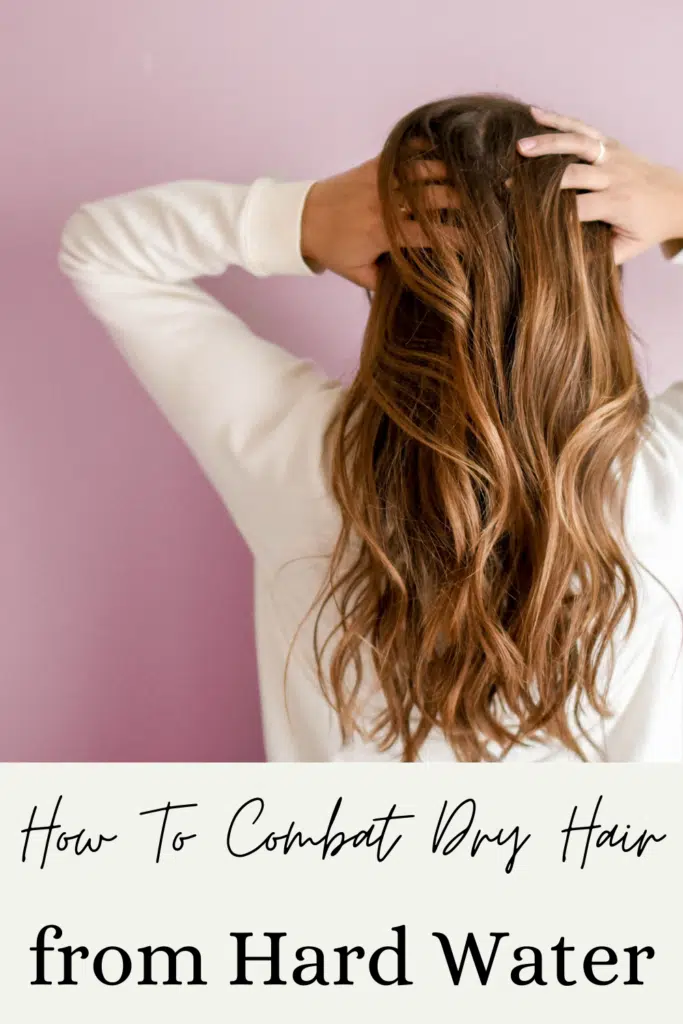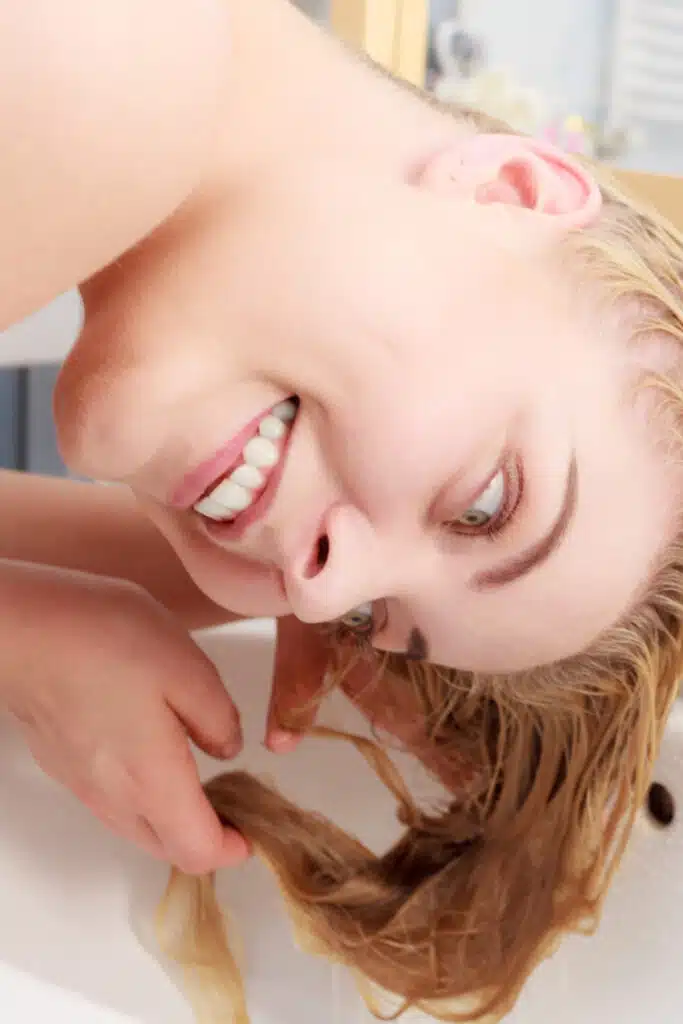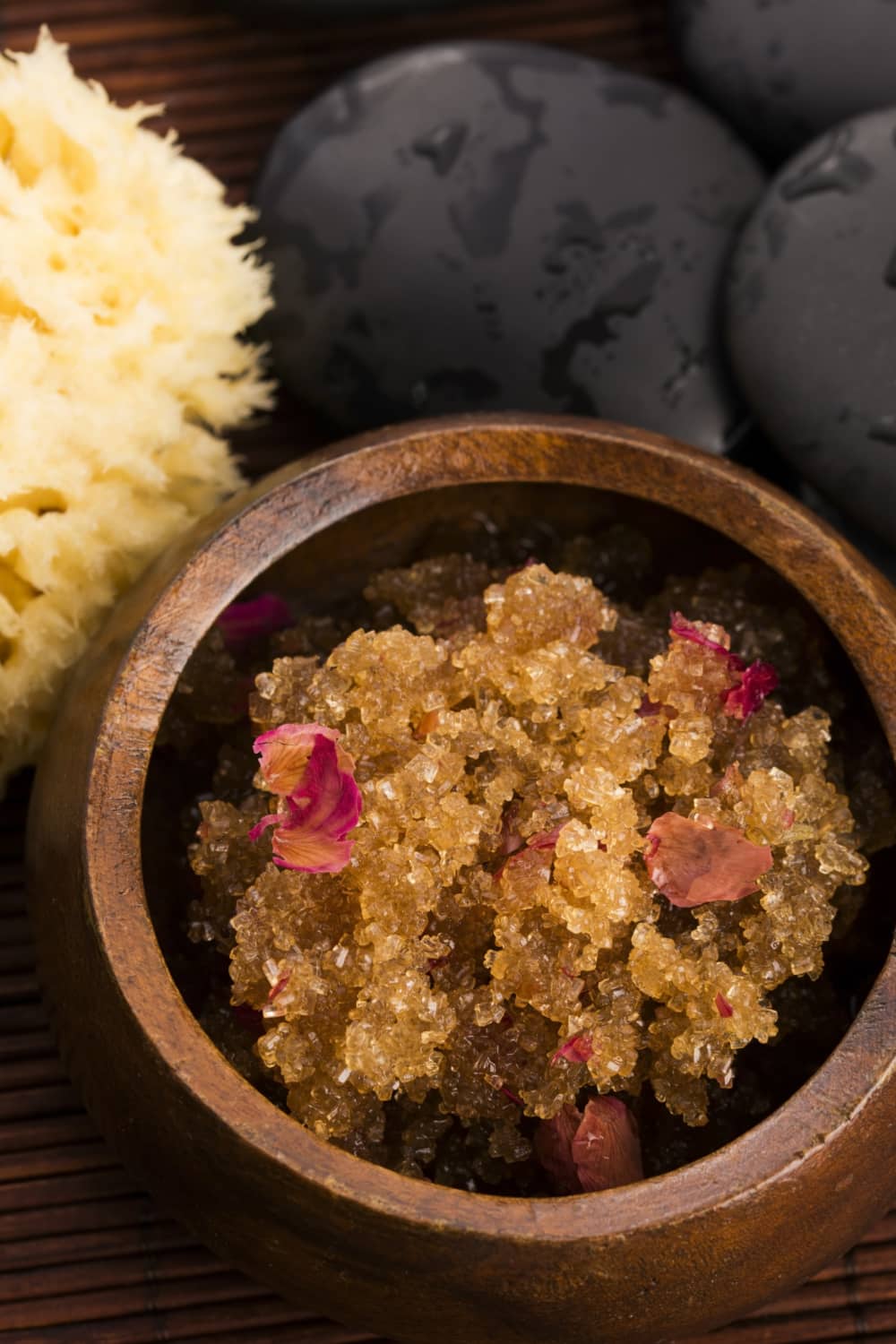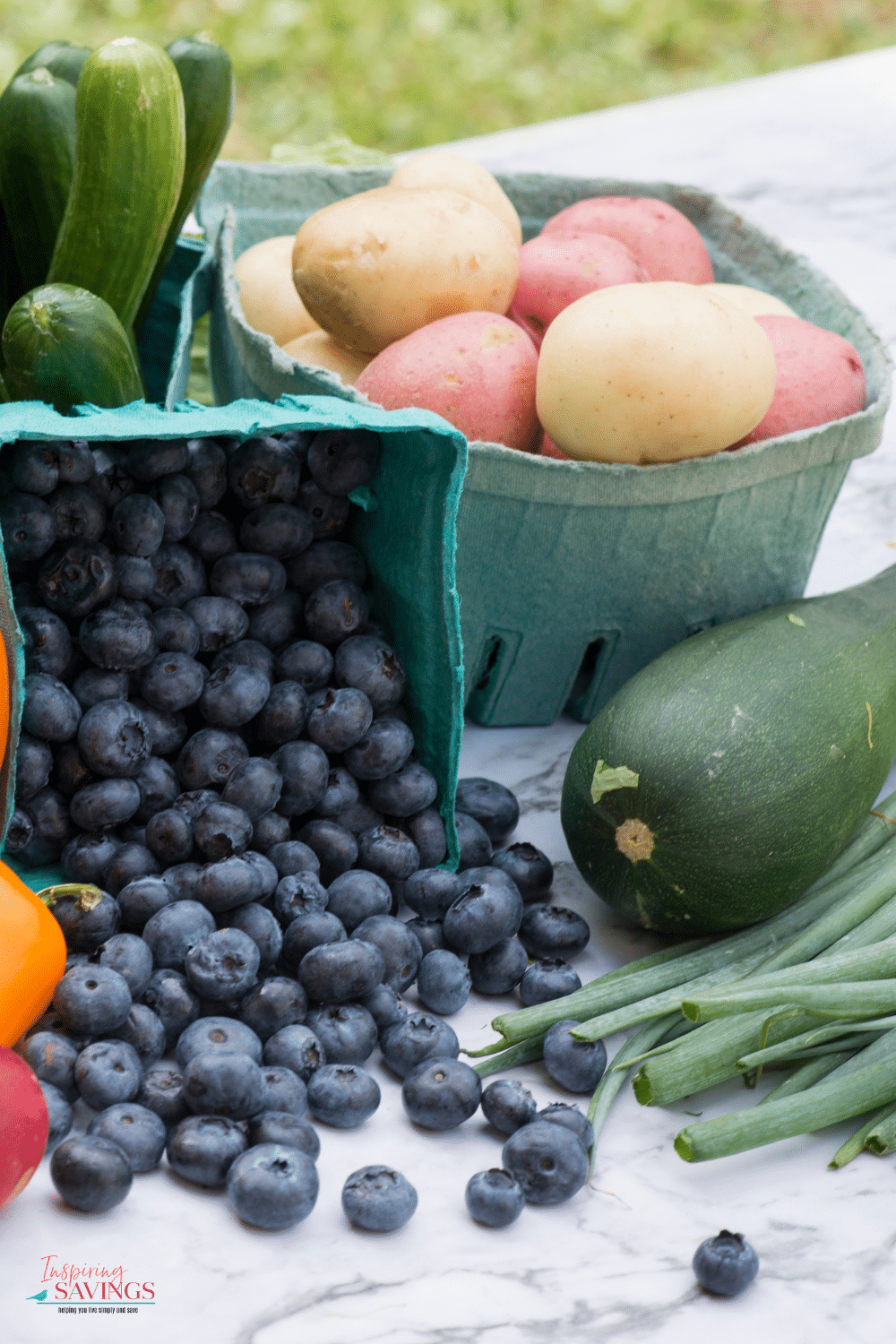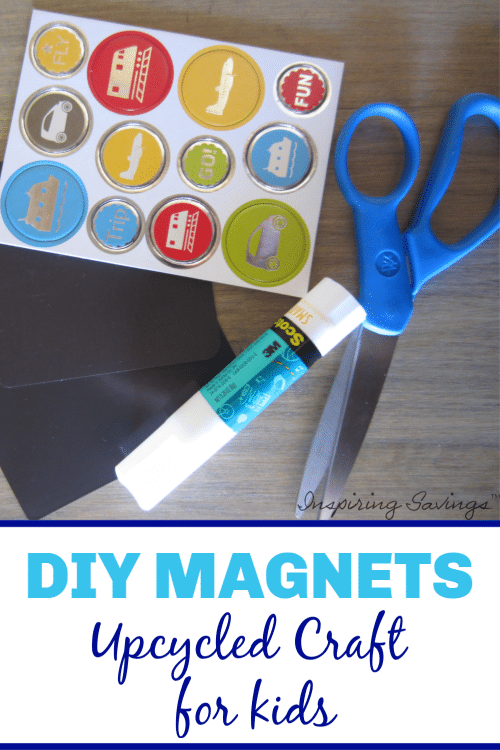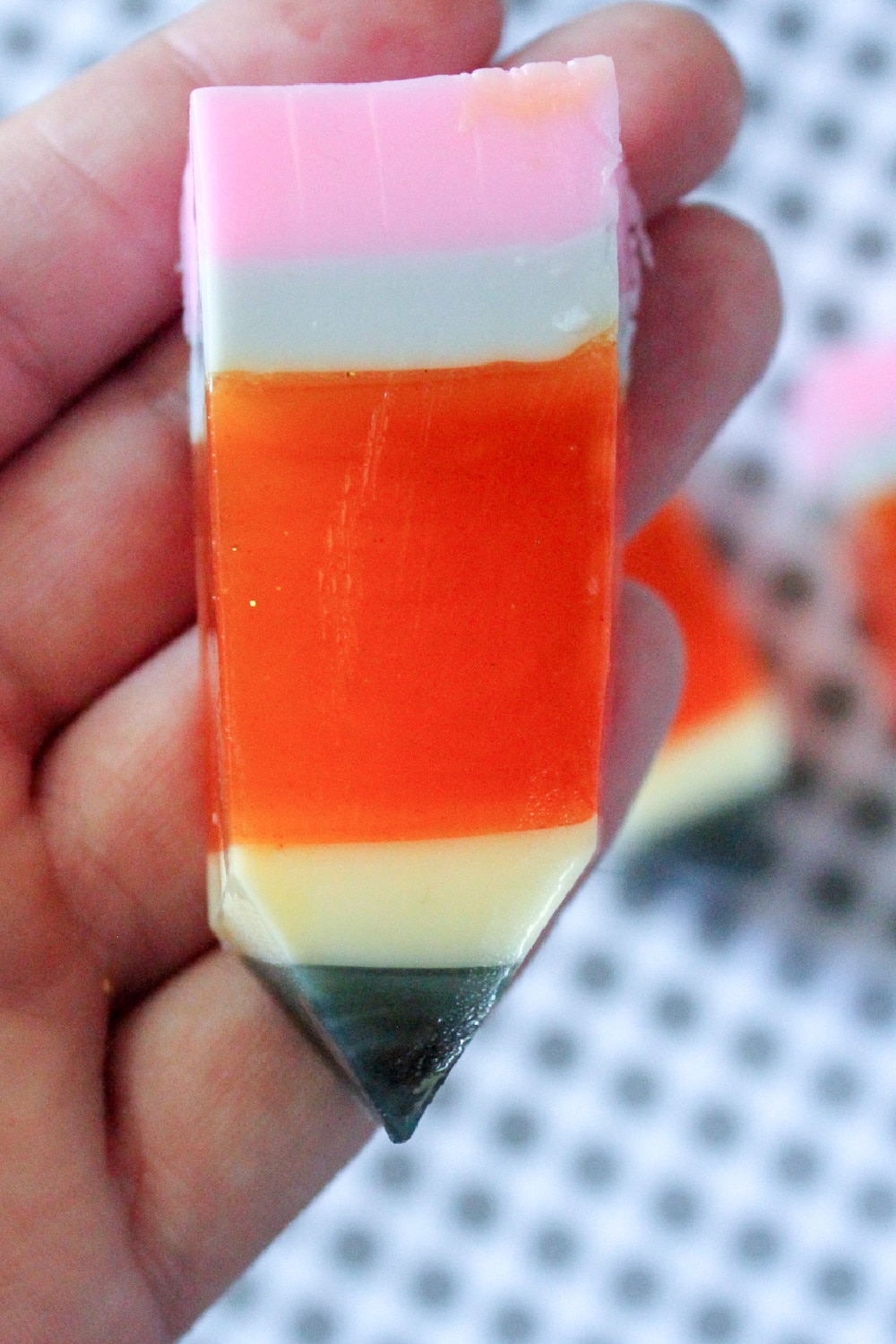Combat Dry Hair from Hard Water With Apple Cider Vinegar
Discover how incorporating apple cider into your haircare routine can effectively combat frizzy and dry hair caused by hard water. Learn about the benefits of apple cider Vinegar.
Combat Dry Hair from Hard Water With Apple Cider Vinegar
Are you tired of battling frizzy, dry hair? Feel like every clarifying shampoo on the market is too expensive or just doesn’t match up to the hype? And don’t forget we girls who have color-treated hair can’t use a clarifying shampoo (it will strip the color).
You thought about a water softener, but your landlord won’t agree to install one. Well, fret no more! What if I told you the secret to luscious and hydrated locks could be found in your kitchen pantry?
That’s right, the answer lies in a humble ingredient: apple cider vinegar or (acv). Did you know that incorporating an acv hair rinse into your haircare routine can effectively combat frizzy and dry hair caused by hard water?
Discover the incredible benefits of apple cider and learn how to use it as a natural hair rinse for achieving the silky, hydrated locks you’ve always wanted.
Find more Homemade Beauty Product Recipes on Inspiring Savings
The Effects of Hard Water On Hair
Hard water contains high mineral content, like calcium and magnesium, which can wreak havoc on our hair and leave it feeling dry, dull, and prone to frizz.
When we wash our hair with hard water, these minerals can build up on our strands, creating a barrier that prevents moisture from penetrating the hair shaft. As a result, our hair becomes dehydrated and more susceptible to damage from heat styling tools, product buildup (hair care products), and environmental factors.
But why does hard water affect some people’s hair more than others? The answer lies in the natural composition of our hair. Hair comprises tiny scales that lie flat when the pH level is balanced. However, the minerals in hard water can disrupt this balance, causing the scales to lift and tangle. This is what causes fizz and a lack of shine.
Fun fact! Apple cider vinegar contains vitamins and minerals that nourish and strengthen your hair. It is packed with vitamin C, which promotes collagen production and helps maintain the health of your hair follicles. Additionally, it is a good source of potassium, which can encourage hair growth and reduce hair loss.
Find healthy and inexpensive skin care beauty recipes for flawless skin
Benefits of Apple Cider Vinegar
Apple cider vinegar has long been celebrated for its numerous health benefits, but did you know that it can also work wonders for your hair? When it comes to combating the effects of hard water, this vinegar is a secret weapon that can help restore and revitalize your locks.
When you add an apple cider vinegar rinse to your hair care routine, you will notice a significant difference. Even on your first rinse. The acidity of this type of vinegar will counteract the effects of hard water and promote a healthier and more balanced scalp environment.
Even with soft water and a shower filter, your hair will benefit from this rinse.
ACV Hair Rinse Recipe
STEP ONE: Mix 1 part Bragg’s Apple Cider Vinegar and 5 parts water in a spray bottle or hair applicator. Shake well. Example: 1 cup Bragg’s to 5 cups of water.
STEP TWO: After shampooing and conditioning your hair as usual, pour the apple cider rinse over your head, making sure to saturate your hair from roots to ends.
STEP THREE: Massage your scalp gently to ensure that the mixture reaches all areas of your hair. Allow the rinse to sit for 5 to 10 minutes, allowing the apple cider to work its magic.
STEP FOUR: Rinse hair with cool-to-the-touch or cold water.
You’ll notice that your hair feels smoother, softer, and more manageable after using this natural hair rinse. For best hair health, incorporate apple cider rinses into your hair care routine once or twice a week.
Frequently Asked Questions
Can you use distilled vinegar instead of ACV?
White vinegar, in short, has a much higher PH. You can, of course, use it as a substitution, but you will need to dilute it. White vinegar is also missing many of the nourishing vitamins and minerals that we get with apple cider vinegar. ACV natural ingredients are preferred for mineral build-up and healthy hair growth.
Can Apple Cider Vinegar Damage Hair?
YES! This is why we recommend doing a rinse once or twice a week. Vinegar can strip away leftover products, but it also strips away excess oil and natural oils.
If this is done too much, it can lead to thinning and hair breakage. Even if you have oily hair, you shouldn’t rinse more than the recommended amount.
Can you use apple cider vinegar rinse instead of shampoo?
You should use apple cider vinegar after you shampoo your hair, not in place of it. ACV has a very low pH and closes down the hair cuticle just like a conditioner does.
More Helpful Beauty Treatments
Creating a Spa Day at Home With Shower Jelly Soap
Homemade Shower Gel with Essential Oils
Soothing Oatmeal Bath Bomb Recipe for Dry Skin
This post may contain affiliate links or sponsored content. Disclosure Policy

